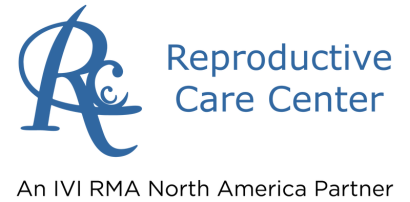Egg freezing is an exciting and potentially “life changing” procedure offering women with declining egg quality, due to age or due to having been recently diagnosed with cancer, the ability to preserve their fertility.
Eggs can be harvested and stored for use later in life or following the completion of oncology treatments, allowing patients who might not otherwise have the ability to conceive to use their own eggs.
The number of babies born from frozen eggs has increased dramatically over the last several years. Most of these pregnancies originated from eggs that were frozen for relatively short periods. However, experts agree that frozen eggs, like other tissue, will remain viable indefinitely.
RCC was the first fertility clinic to deliver a baby using frozen eggs in Utah and, since this first pregnancy, has successfully helped hundreds of couples deliver babies using frozen cycles.
Watch Video
Overview
Eggs are retrieved from patients and stored in sub-zero temperatures to preserve healthy eggs for future use.
Age and Fertility Preservation
A healthy woman can become pregnant in her late forties or early fifties, however, egg quality declines with aging and can cause fertility issues. Women who choose to delay childbearing can benefit from egg freezing as fertile eggs are preserved for future use through in vitro fertilization (IVF). Eggs retain their “fertility capacity” present at the time of freezing; therefore, if a 25-year-old woman freezes her eggs, she can use them later in life when her egg quality has declined. Prior to the introduction of egg freezing, using an egg donor was the only option for women with poor egg quality.
Prevention of Egg Damage from Cancer Treatments
Another use of egg freezing is to prevent damage caused by cancer treatments. Most cancer treatments selectively target rapidly dividing cells such as cancer cells, hair cells, the cells lining the gastrointestinal tract, and ovarian cells, especially the eggs. There can be wide variations in the damage among different women and some develop permanent menopause after a single chemotherapy treatment. Eggs can be frozen prior to exposure to chemotherapy, radiation, or surgery, preventing damage and preserving fertility. Thawed eggs can be used in an IVF cycle after completion of treatments.
Donor egg freezing enables multiple patients to use the eggs of one donor, thus reducing cost. Freezing extra eggs allows the patient the option of using their eggs in future cycles or donating unused eggs to other infertile patients.
All patients (male and female) should seek information regarding the reproductive implications of cancer treatments and consider the opportunity to freeze eggs or sperm.
Egg (Oocyte) Retrieval Process & Storage Costs
Costs for egg (Oocyte) storage depend on the cycle plan chosen and type of storage tank used.
Typically costs include the following:
- New Patient visit to complete a physician consultation and medical history review (copay if the patient has insurance or cash price of $283, if uninsured).
- Infectious Disease testing (billed to insurance or, if the patient is self-pay, paid to LabCorp at time of service for best pricing).
- Cost of medications to stimulate the ovaries (billed by and paid to a 3rd party pharmacy).
- Cost of anesthesia $375 cash price / $390 credit card price (paid to 3rd party anesthetist).
Options for different egg (Oocyte) retrieval packages are as follows:
Global Single Cycle Plan: $17,886 (includes monitoring, retrieval & freezing and does not include storage)
Multi-Cycle Discount Plans (includes monitoring, retrieval, freezing (cryo), and 1 year of storage starting at the date of first freezing (cryo). Options are as follows:
- MCD 2 (2 cycles): $24,835
- MCD 3 (3 cycles): $28,005
- MCD 4 (4 cycles): $35,008
* Patients must be approved by their physician for these plans. The number of eggs (Oocytes) retrieved can vary and is not guaranteed. Patients living outside of the Wasatch Front area may elect to have their monitoring performed elsewhere, with approval from RCC’s physician. In this instance, the monitoring charge is waived.
- After the contract is fulfilled (with a live birth or when all cycles are completed), a yearly storage fee is charged. Storage is billed by calendar year. Partial year storage is prorated.
Prices for storage options are as follows:
- Liquid Nitrogen Tank: $750annually or
- Vapor Tank: $1,000 annually (patients not tested for infectious disease need to use the vapor tank for storage)
- If a patient wants to use an RCC tank to transport embryos or eggs (Oocytes), the cost is $314. RCC will place a $1,000 holding fee on your credit card to ensure the tank is returned the same day, undamaged. There is a $100 fee per day if the tank is not returned the same day. Shipping and handling costs may also be applicable if using a third-party shipper such as Federal Express, USPS, etc.
Please note, price matching and other discounts do not apply to storage fees.






